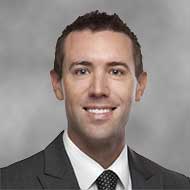As technology rapidly advances, it can be challenging to keep up with the latest trends. However, outdated hardware and software can significantly impact the performance of your computer. Knowing when it’s time to invest in a new one can save you money and increase productivity. In this section, we will explore the signs that your PC is outdated and how to determine if you need a replacement.
Key Takeaways:
- Slow performance and lagging can indicate that your computer needs to be replaced.
- Outdated hardware and software can result in decreased system stability and poor performance.
- Frequent crashes or error messages can be caused by various hardware or software issues and may indicate that it’s time to buy a new PC.
- Regularly assess your computer to ensure optimal performance and keep up with the ever-evolving technology.
- How do I know if my computer needs to be replaced? Pay attention to slow performance, outdated hardware and software, and frequent crashes.
Slow Performance and Lagging
Slow performance and lagging are some of the first signs that your PC might be outdated. You may notice that your computer takes longer to respond to commands, applications take forever to load, and general tasks are sluggish and unresponsive. This can be a frustrating experience that can negatively impact your productivity, especially if you rely on your computer for work or study.
If your computer is lagging or taking longer than usual to complete simple tasks, it might be time to consider investing in a new computer. It’s important to keep in mind that slow performance can be caused by a variety of factors, from outdated hardware to software issues, so it’s important to diagnose the problem accurately before making a decision.
One way to improve your computer’s speed is to upgrade its RAM. By upgrading your RAM, you can improve your computer’s ability to handle multiple tasks simultaneously and reduce lag. Additionally, clearing out cluttered files and programs and managing your system’s start-up applications can also help improve your computer’s performance.
Outdated Hardware and Software
Is your computer running slower than usual? Are you experiencing system crashes and frequent error messages? This may be due to outdated hardware and software components. Outdated hardware, such as processors, memory, and graphics cards, can greatly affect your computer’s overall performance. As technology advances, newer software and applications require more powerful hardware to run efficiently.
To determine if your hardware specifications are up to par, check your computer’s documentation or run a system scan. If your computer specifications fall short of the recommended minimum, it’s time to consider upgrading or replacing them. Additionally, running outdated software can lead to compatibility issues and security risks.
To avoid these problems, make sure to keep your software updated, including drivers and operating systems. Keeping software up to date will provide the latest security patches and ensure compatibility with new software. With up-to-date hardware and software, you can ensure optimal performance and get the most out of your computer investment.
Frequent Crashes and Error Messages
Have you ever experienced frequent crashes and error messages while working on your computer? These issues could be red flags indicating potential hardware or software issues that shouldn’t be taken lightly. Common causes of crashes may include overheating, driver issues, or corrupted files that lead to instability in your system.
Overheating is a leading cause of crashes and can be caused by dust accumulation, inadequate cooling, or malfunctioning fans. Unoptimized drivers can also cause your system to crash frequently, often leading to costly hardware damage if left untreated. Corrupted files from viruses, malware, or power outages can cause error messages to appear and affect your computer’s system stability.
Ignoring these issues can result in more serious problems like data loss or total system failure. It’s essential to address any crashing or error message issues as soon as possible to maintain the stability of your computer system.
Conclusion
Recognizing the signs of an outdated PC is crucial in maintaining productivity and efficiency. If your computer is showing signs of slow performance, lagging, frequent crashes, and error messages, it may be time to consider a replacement. Investing in a new computer with up-to-date hardware and software can help ensure system stability and reduce the risk of security vulnerabilities. Regularly assessing your computer’s condition is key to maintaining optimal performance in an ever-evolving technology landscape. Don’t let an outdated PC hold you back; consider a replacement today.
FAQ
How do I know if my PC is outdated?
There are several signs that indicate your PC may be outdated. Some common indicators include slow performance, lagging, outdated hardware and software, and frequent crashes or error messages. If you are experiencing any of these issues, it may be time to consider investing in a new computer.
What are the signs of slow performance and lagging?
Slow performance and lagging can manifest in various ways. You may notice delayed response times, programs taking longer to load, and overall sluggishness in everyday tasks. These can be indicators that your computer is struggling to keep up with the demands of modern software and may need to be replaced.
How does outdated hardware and software impact computer performance?
Outdated hardware, such as processors, memory, and graphics cards, can significantly affect the performance of your PC. As technology advances, older components may struggle to handle the latest software and applications, resulting in decreased speed and efficiency. Additionally, running outdated software can cause compatibility issues and expose your computer to security risks.
What causes frequent crashes and error messages?
Frequent crashes and error messages can be caused by various factors, including overheating, faulty drivers, and corrupted files. These issues can compromise the stability of your system and result in sudden shutdowns or freezes. It is essential to address these problems promptly as they can indicate underlying hardware or software issues that may require a computer replacement.
When should I consider replacing my outdated PC?
It is recommended to consider replacing your outdated PC when you start experiencing significant performance issues and other signs of outdatedness. If your computer is consistently slow, struggles to run modern software, and frequently crashes or displays error messages, it may be time to invest in a new computer. Regularly assessing your computer’s condition can help ensure optimal performance and keep up with evolving technology.





